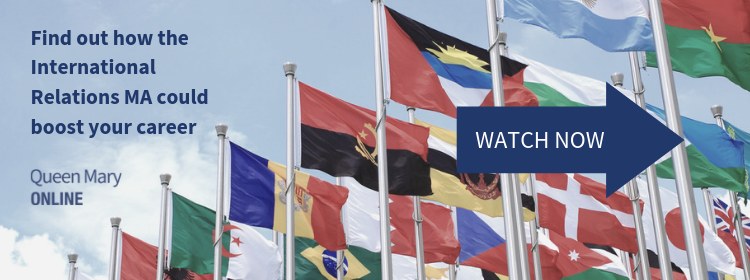Dr Nevena Nancheva is a tutor for the Queen Mary Online International Relations MA and has a particular interest in European integration, EU security and migration governance, and earlier, nationalism and national minorities. Here, she raises important questions about whether it's ethical to consider British citizenship a privilege rather than a right.
Who deserves to be a British citizen? Not just anyone, surely?
For some, acquiring British citizenship is recognition of belonging to a prized community of value, and should be guarded as a special privilege for those who deserve to join. To be given the British passport! Frances Stonor Saunders calls it "a swaggering thing, with a power of Open Sesame that places it first in the world (shared with Germany) for visa-free travel" currently to 173 countries and territories. Being British then is clearly first-class citizenship.
Over the course of the past months and years, HM Government has discussed and agreed a series of measures with the aim of ensuring only those whom it deems deserving are given access to it. The Life in the UK test, introduced under the 2002 Nationality, Immigration and Asylum Act, together with a citizenship ceremony, oath and pledge, was one of the first steps in that direction.
A recent governmental Green Paper (Integrated Communities Strategy 2018) plans to attach English language requirements on entry visas to the UK, and to strengthen the focus in the test 'on the values and principles of the UK which we expect all people to live by'. This is to counter certain 'overseas influences [which] can undermine attitudes to rights and freedoms in the UK' (p. 15 of the Green Paper).
Another consultation paper, put together by the All-Party Parliamentary Committee on Social Integration in 2017, backs these plans and invites 'Britons-in-waiting' to volunteer in their local communities in order to fulfil the proposed set of 'active citizenship criteria'. The paper also plans more public prominence for the citizenship ceremonies.
The widely influential Casey Review completed in 2016 by Dame Louise Casey even looks to ask a 'pledge of integration' of all immigrants arriving to the UK. All these measures work to avoid the instrumental, 'low-commitment' relationship of some (read undesirable) immigrants with the UK, identified as a problem around the 2016 EU referendum. Re-framing UK citizenship as a privilege one has to prove worthy of aims to sieve through all 'undesirables' and to then 'concentrate rights, benefits, [...] subsidised language lessons and so on' (Goodhart 2016: 15) on those who are making a full commitment to the country.
But why do we have to think of British (and any) citizenship as a privilege and not a right? Is this ethically justifiable? What of those unfortunates who flee from governments threatening their lives and turning them into what the 1951 Geneva Convention calls refugees: do they view their worthless citizenship as a privilege?
In her study of the origins of totalitarianism (1951) Hannah Arendt agonisingly called them the 'scum of the earth'. How about the bottom-liners from countries unofficially classified as what the French sometimes call the 'petits pays de merde': do they not have a right to access a 'life worth living' here in Britain? Or are they rightly considered 'undesirables' here, as per the now notorious 'hostile environment' immigration policy favoured by the UK's current troubled Prime Minister?
We look at these questions with the topic of border control in the first Queen Mary Online International Relations MA module on Contemporary World Politics. Central to understanding the workings and legitimacy of our international system of sovereign nation-states, we often go back to them when we discuss security, humanitarian intervention, and the global economy.
Discover how the International Relations MA at Queen Mary Online can help you achieve your career goals:
.png?width=280&height=74&name=logo%20(1).png)



 Follow us on Twitter
Follow us on Twitter Like us on Facebook
Like us on Facebook